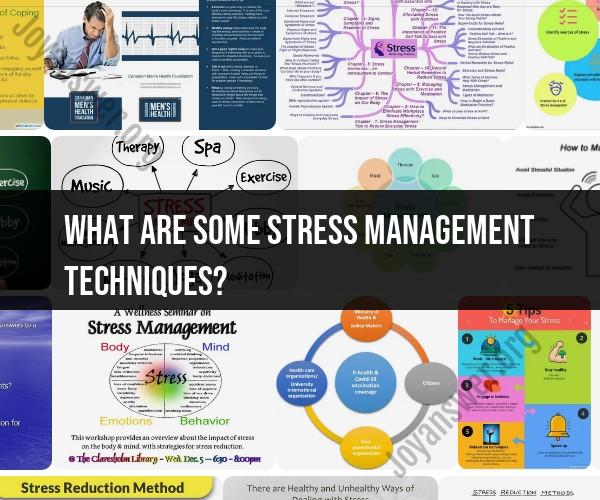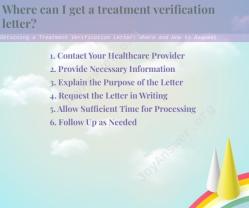What are some stress management techniques?
Effective stress management techniques can help you reduce and cope with the pressures of daily life, improve your overall well-being, and enhance your resilience. Here are some stress management techniques you can try:
Deep Breathing: Practice deep breathing exercises to calm your nervous system. Inhale deeply through your nose, hold for a few seconds, and exhale slowly through your mouth.
Progressive Muscle Relaxation: Tense and then relax each muscle group in your body, starting from your toes and working your way up to your head. This can help release physical tension.
Mindfulness Meditation: Engage in mindfulness meditation to stay present and reduce anxiety. Focus your attention on your breath or a specific object, and gently redirect your thoughts when your mind wanders.
Yoga: Yoga combines physical postures, breathing exercises, and mindfulness. It can improve flexibility, reduce stress, and enhance physical and mental well-being.
Exercise: Regular physical activity releases endorphins, natural mood lifters. Even a short walk can help reduce stress.
Healthy Eating: Maintain a balanced diet with plenty of fruits, vegetables, whole grains, and lean proteins. Avoid excessive caffeine and sugar.
Adequate Sleep: Prioritize sleep and establish a consistent sleep routine. Aim for 7-9 hours of quality sleep per night.
Time Management: Organize your time and set realistic goals. Prioritize tasks and break them down into manageable steps.
Social Support: Connect with friends and family for emotional support. Talking about your feelings can provide relief and perspective.
Hobbies and Interests: Engage in activities you enjoy, whether it's reading, gardening, painting, or playing a musical instrument.
Limit Technology: Set boundaries on screen time, especially before bedtime. Constant exposure to screens can increase stress.
Journaling: Write down your thoughts, feelings, and concerns in a journal. This can help you process emotions and find solutions.
Positive Self-Talk: Replace negative thoughts with positive affirmations. Challenge irrational or catastrophic thinking.
Seek Professional Help: If stress is overwhelming and persistent, consider consulting a therapist or counselor for guidance and support.
Humor: Find moments of humor and laughter in your day. Laughter is a natural stress reliever.
Relaxation Techniques: Practice relaxation exercises such as guided imagery, progressive muscle relaxation, or visualization.
Limit News Consumption: Reduce exposure to stressful news or social media when it becomes overwhelming. Stay informed but in moderation.
Spirituality and Mindfulness: Engage in spiritual practices or explore mindfulness-based approaches to reduce stress.
Set Boundaries: Establish clear boundaries to protect your time and energy. Learn to say "no" when necessary.
Gratitude: Focus on gratitude by keeping a gratitude journal or simply taking a moment each day to acknowledge what you're thankful for.
Aromatherapy: Use calming scents like lavender, chamomile, or eucalyptus to create a soothing atmosphere.
Guided Stress Management Apps: Consider using mobile apps designed for stress management, which can provide guidance and exercises.
Remember that different techniques work for different people, so it may take some experimentation to find the strategies that work best for you. The key is to make stress management a regular part of your routine and to seek help when needed.













